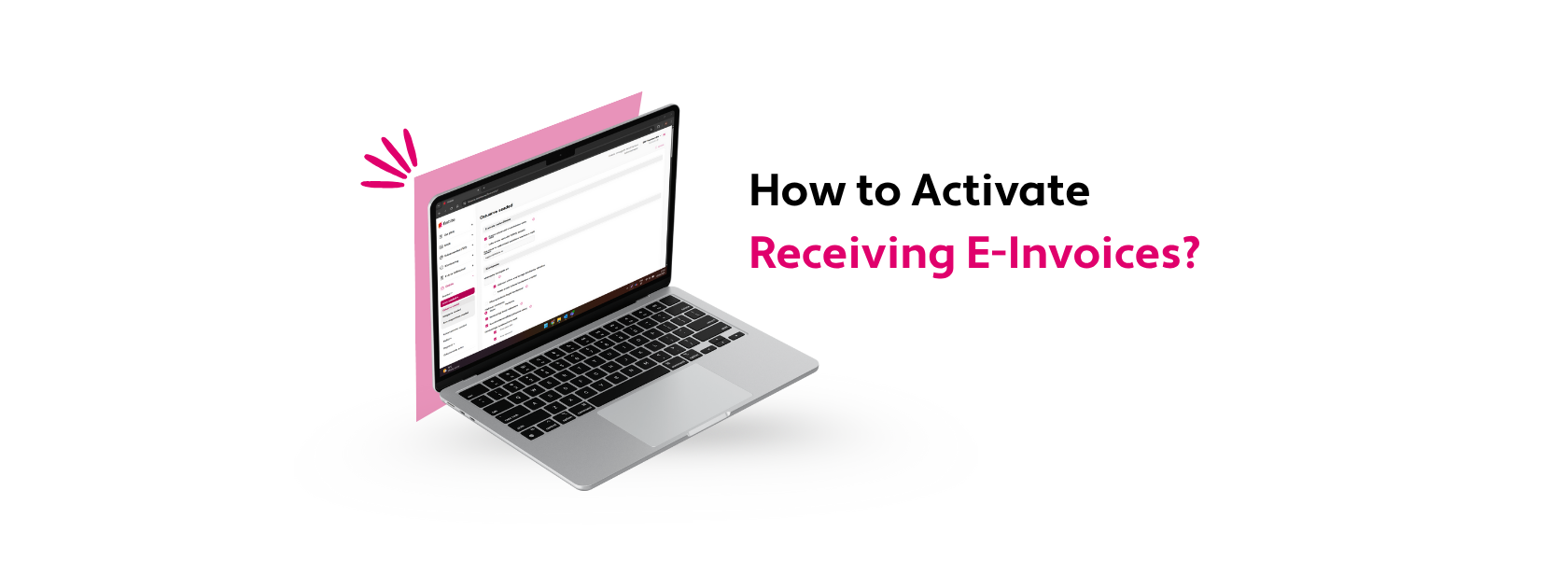
Whether you’re submitting a tax return, being audited, or simply want an overview of your finances, it’s essential to have well-organized and easily accessible documents.
Traditional document archiving can be effective, but it’s also time-consuming and prone to error, which has led many businesses in the Baltics to adopt digital archiving.
But what is digital archiving and why is it so beneficial?
In this article, we’ll compare traditional document archiving methods with digital document archiving, explain the benefits of archiving documents digitally, and give a step-by-step guide on how to digitally archive documents for your business.
In this article
What is document archiving?
Document archiving is the long-term storage of important information. The purpose of document archiving is to preserve critical business information in an organized, accessible, and protected manner.
Document archiving can help businesses properly file tax returns, comply with regulations, support operational needs, and safeguard valuable data. Businesses can keep paperless archives or opt for an electronic data archive.
On-premise archiving
On-premise archiving is the traditional form of document archiving. Businesses record essential information on paper documents, then store the documents in physical storage (eg file boxes or filing cabinets).
On-premise archiving comes with some significant drawbacks, such as the large storage space required for storing paper documents and the risk of loss or damage to paper documents.
Digital document archiving
Digital document archiving, also known as e-archiving, is the process of archiving documents in a digital environment. There are various types of digital storage mediums for the electronic archiving of documents, but many businesses use an online document archive.
The benefits of archiving documents digitally
Efficiency
Digital archiving eliminates the need for manual filing of documents. It also makes it easier to retrieve these documents when necessary.
For example, when invoices are digitized and stored in a digital invoice archive, employees can quickly search for and access the required invoices with just a few clicks. This saves valuable time and reduces the risk of lost or misplaced documents.
Digital archiving also makes it easy for team members to share important documents when working remotely.
Cost Savings
Businesses that archive documents digitally can also cut down on costs. With digital archiving solutions like Finbite, businesses can eliminate the manual labor costs associated with managing paper documents. A digital archive system makes it easy for employees to access essential data, further reducing labor costs. Digital archiving also eliminates the cost of paper and physical storage that comes with on-premise archiving.
Security
Digital archive solutions often include features such as version control, audit trails, and secure access controls, which help maintain the integrity and confidentiality of financial records. With Finbite’s electronic archiving services, all documents are duplicated and safely stored. Paper documents are less secure and are prone to damage, fading, and loss.
Audit preparedness
There is a strong focus on transparency and compliance in the Baltics. Digital data archiving can help businesses meet regulatory and financial requirements in the case of an audit. By using digital document archiving solutions, companies can ensure all necessary information is readily available for auditors
With Finbite’s digital archiving service, businesses can give auditors online access to purchase invoices, sales invoices, receipts, and other supporting documents. This eliminates the need for an auditor to come to the office and sort through paper documents with the accounting team.
Improved decision making
Switching to digital archive management provides businesses with access to digital data. Digital data is easier to analyze, providing businesses with more insights to guide decision-making.
Finbite provides users with a comprehensive overview of sales invoices, purchase invoices, receipts, and expense reports. Finbite also integrates with other software, making it easier for businesses to analyze this data and make informed decisions.
Sustainability
Paperless archives are also beneficial for the environment. By switching from paper archiving to digital archiving, businesses can eliminate the need for creating paper documents.
Which documents should businesses archive?
Businesses must archive digital documents for financial management, legal compliance, and administrative purposes. There are several types of documents businesses keep when archiving electronic documents.
Invoice archiving
Both purchase and sales invoices are critical financial documents every business should archive.
Purchase invoices are a record of expenses and are necessary for claiming tax deductions and managing cash flow. Sales invoices are proof of revenue and are essential for tracking customer payments, managing accounts receivable, and filing taxes.
A digital invoice archive is essential for managing invoices. Invoice archiving software makes it easy to search for specific transactions, monitor payment status, and generate financial reports using real-time financial data.
Expense report archiving
Expense reports detail employee expenses incurred for business purposes, such as travel, meals, and entertainment. Expense report archiving is necessary for employee reimbursement, tax purposes, and budgeting.
Using electronic archiving software makes it easy to store and access expense reports. And with tools like Finbite, users can also streamline the expense approval process.
Legal documents
Legal documents, such as contracts, agreements, licenses, and permits, establish the rights and obligations of the company and its stakeholders and are essential for mitigating legal risks and resolving disputes.
Electronic archiving solutions can provide a secure and centralized repository for legal documents, ensuring that critical information is protected and easily retrievable when needed.
Reports and administrative documents
Finally, businesses should archive various reports and administrative documents, such as financial statements, performance reports, meeting minutes, and HR records.
These documents provide valuable insight into a company’s operations, decision-making processes, and compliance with internal policies and external regulations.
How to archive documents electronically
Choose the best archiving software
The first step in archiving digital documents is finding the best document archiving software for your needs.
Assess your archiving needs based on the type of documents you need to store. For example, if you’re archiving legal documents look for legal document archive solutions. For invoice archiving, secure digital archiving software like Finbite is the best option.
Digital archive software should also offer a flexible pricing plan, so you can upgrade your plan if your business grows and you need to store more documents.
Finally, look for software that integrates with your existing ERPs. For example, Finbite integrates with leading ERPs in the Baltics, making it easy to share digital documents between your existing systems and your digital archive.
Digitize your documents
When adopting digital document archiving solutions, one of the first steps is digitizing your existing paper documents.
Archiving paper documents electronically can be a long tedious process, but tools like the Finbite mobile app can expedite the process. Simply take a picture of paper receipts and digitize them into an electronic, machine-readable format. Once the receipt is digitized, there is no need to store the paper receipt.
Categorize your documents
By properly categorizing your documents, you can easily find documents in your digital archive. For example, if you’re storing expense receipts, categorizing them according to the type of business expense (eg office supplies, travel expenses) makes it easy to retrieve the correct expense documents during tax time.
Transfer documents to your digital archive
Once you’ve digitized and categorized your documents, the next step is to transfer them to your digital archive. With Finbite’s digital archiving services, this is one seamless process. You can digitize and categorize your invoices and expense reports. Everything that gets digitized moves into a digital archive, where it’s stored as long as necessary. In Estonia, businesses should store documents for 7 years, and in Lithuania, for 10 years.
FAQ: Digital document archiving
What is the best archiving software?
The best archiving software depends on the type of digital documents you want to store. For invoice archiving, Finbite is the best document archiving software.
Through the Finbite platform, users can digitize invoices into electronic, machine-readable invoices, and then seamlessly upload the documents to the digital archive. Finbite makes duplicates of all documents, to ensure all data is securely stored. Finbite’s digital archive is secure and easily accessible.
Are there any free document archiving solutions?
Businesses can use free online cloud storage like Google Drive to archive digital documents. With these solutions, businesses can upload their documents to archive documents online for free. However, free digital archiving tools often come with limited storage space, and organizing documents can be more difficult.
For a more efficient, secure, and accessible online document archiving solution, it’s better to use paid digital archiving software like Finbite.
Should I store digital files forever?
One of the benefits of online document archiving is that documents can be stored indefinitely, without the risk of fading, loss, or damage. Whether you should keep a digital file forever depends on the type of document and the reason for keeping it.
For example, businesses must keep certain documents for a set number of years for tax purposes. On the other hand, some legal documents should be kept as long as a business is operating.
How long to archive documents in the Baltics?
The length of time a business must archive documents digitally depends on the country they operate in. Businesses in Estonia must keep receipts and other accounting documents for seven years. In Latvia, businesses must keep receipts and financial records for five years, and in Lithuania, businesses must keep them for ten years.
Archive your documents with Finbite
Many businesses are switching to electronic archiving for benefits such as improved efficiency, cost savings, and data security. There are many digital document archiving software available today, but Finbite is the best for invoice archiving.
Finbite offers a user-friendly, comprehensive digital archive that allows companies to digitize invoices, categorize them for easy retrieval, and safely store them in a secure environment. Finbite also integrates with popular ERPs, enabling frictionless document sharing across your existing systems.
Get started with Finbite today for fast, secure, and reliable document archiving.





